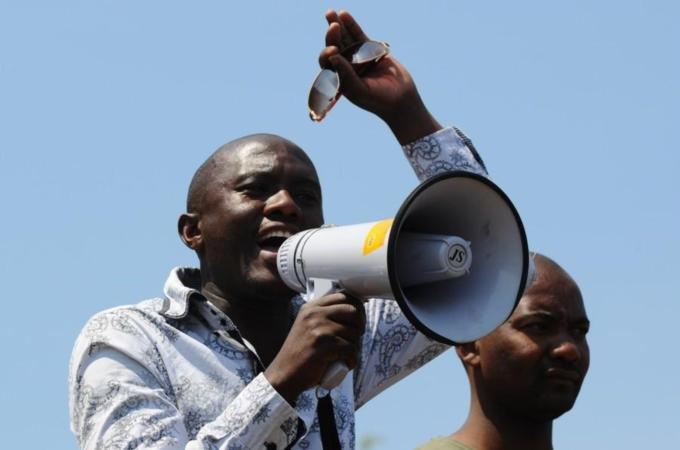A new 2015 draft law governing the work of NGOs in Egypt has been influenced by National Security, making it worse than the government’s 2002 law, Executive Director of the Arabic Network for Human Rights Information (ANHRI) Gamal Eid told Daily News Egypt.
Eid’s statement came in response to a government report released on Sunday, which stated that the Ministry of Social Solidarity has held discussions with more than 600 NGOs in various fields across the country on the NGO draft laws of 2012, 2013, and 2014. Based on these discussions and in the presence of civil society experts, the ministry said it has revised civil society organisations’ recommendations and suggestions regarding the new draft.
Eid explained that former social solidarity minister Ahmed El-Boraie previously agreed on a draft law with NGOs that still included some restrictions on NGOs, but it was still a better draft law. It was reportedly submitted to the cabinet for study.
However, that draft law was excluded in the 2015 edition and the new draft law was prepared under recommendations made by the National Security Apparatus and it includes more restrictions for NGOs.
Eid and several other rights defender are being implicated in the 2011 “NGOs’ foreign funding” case, which was reopened in early March and accused 109 NGOs of receiving unauthorised funding from abroad.
While the draft law has not been released to the public, Eid said he received a copy from the General Federation of Associations and Civil Institutions, affiliated with the Ministry of Social Solidarity.
The National Council for Human Rights (NHCR) member Nasser Amin said the new draft law for NGOs has not yet been submitted to NCHR. He affirmed the necessity of announcing it to NGOs soon so that they can be aware of it, according to the newspaper Al-Youm Al-Sabaa.
Several calls were made by human rights groups, NGOs, and activists to the NCHR asking the council to interfere and stand against the reopening of the case. NCHR lawyers have been appointed to attend investigations in the NGOs’ foreign funding case in response to the requests.
Amin also suggested that parliament immediately organise a meeting to discuss the NGO draft law with civil society members. He said further pause would lead to postponing and hindering the work of NGOs.
On Wednesday, the Ministry of Social Solidarity claimed, in a government report submitted to the cabinet, that 61 local NGOs are illegally receiving foreign funds.
According to cabinet spokesperson Hossam El-Kawish, the ministry has approved 90% of local NGO foreign funding requests. El-Kawish said 627 foreign funding grants in total were approved, which were received from 260 foreign sectors and allocated to 425 local NGOs throughout 2015.
The ministry clarified that it had notified all 61 NGOs to improve their legal status. However, it said only six NGOs responded and those that did not will be summoned for investigation.
The Wednesday report mainly discussed the ministry’s strategy to work with NGOs, and the efforts made by the ministry to prepare a draft law which would allow civil society institutions to operate legally.
It also noted that the ministry reduced the foreign funding request approval period from nine to three months, “which reflects the ministry’s eagerness to ease funding procedures as long as the funding is transparent and in the framework of the law”, according to the report.
The report also noted that the ministry has funded 3,287 local NGOs across Egypt with EGP 85m. The report concluded that the ministry created a database for NGOs and associations and updated their information.
Both Eid and journalist and human rights activist Hossam Bahgat, who is the founder of the Egyptian Initiative for Personal Rights (EIPR), and two other defendants in the case are accused of illegally receiving foreign funding.
The case’s reopening is “a violation intended against NGOs, working on monitoring state violations and speaking out against corruption, in order to silence them”, said Eid. He added that NGOs that have not reported on the country’s violations are also involved in the case.
Eid said he was not allowed to review the case documents and sent a request to authorities asking for clarification on what he is being accused of. Minister of Social Solidarity Ghada Wally refused to receive his request, Eid claimed.


